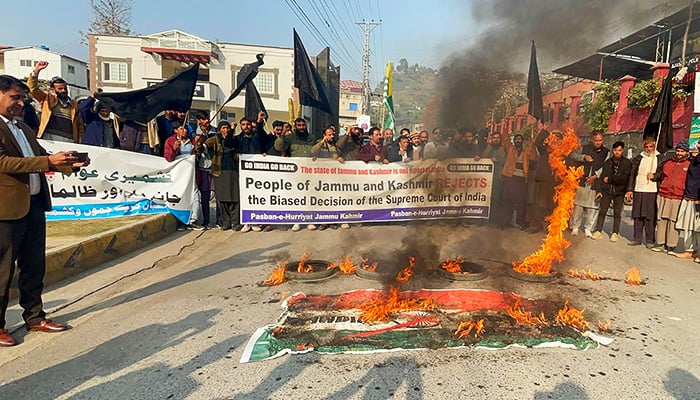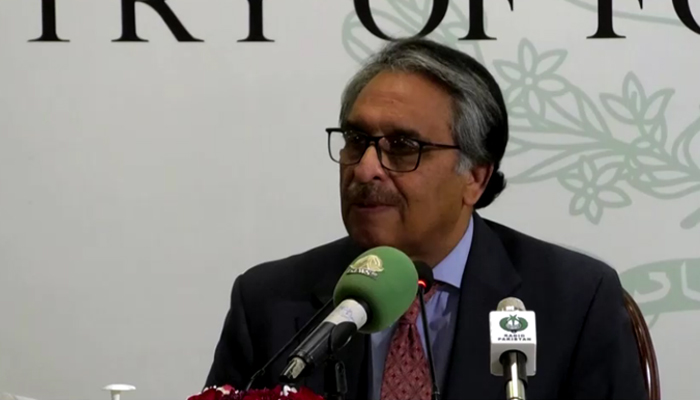
[ad_1]
Judicial verdicts can’t be invoked to determine final status of internationally-recognised disputed territory: FM

- Foreign Minister Jalil Abbas Jilani writes letters.
- He says Indian SC can’t rule on Kashmir’s status.
- FM demands implementation of UN resolutions.
Caretaker Foreign Minister Jalil Abbas Jilani has written letters to leaders of international organisations, inviting their attention to the illegality of the Indian Supreme Court’s judgment on the status of Indian Illegally Occupied Jammu and Kashmir (IIOJK).
In a statement, the Foreign Office said the FM has addressed letters to the leadership of the United Nations (UN), Organisation of Islamic Cooperation (OIC), and the European Union (EU)
In these letters, the foreign minister has underscored that under international law, domestic legislation, and judicial verdicts cannot be invoked to determine the final status of an internationally-recognised disputed territory.
The foreign minister has condemned the unlawful measures of the Indian authorities to consolidate their occupation of IIOJK and persistent suppression of the rights of the people of Jammu and Kashmir.

The Foreign Office said India’s illegal and unilateral actions of August 5, 2019, and a series of subsequent steps, are aimed at altering the demographic structure and political landscape of IIOJK.
“The clear goal of these unlawful steps is to convert Kashmiris into a disempowered community in their own land,” the statement from the ministry added.
Foreign Minister Jilani has termed the recent judgment of the Supreme Court of India, a breach of international law and relevant UN Security Council resolutions, especially Resolution 122 (1957).
This endorsement of India’s unlawful measures cannot override the provisions and prescriptions of the UN Security Council as contained in its resolutions on Jammu and Kashmir, he mentioned in the letters.
The foreign minister has also called on the UN Security Council to ensure full implementation of its resolutions on the Jammu and Kashmir dispute and to urge India to end the grave and systematic human rights violations in IIOJK and to reverse all its illegal and unilateral actions in IIOJK undertaken since August 5, 2019.
India’s top court upheld Monday a move by Prime Minister Narendra Modi’s government to revoke the limited autonomy of the Muslim-majority region.
The 2019 declaration was “a culmination of the process of integration and as such is a valid exercise of power”, the Supreme Court said in its verdict.
The move was accompanied by the imposition of direct rule from New Delhi, mass arrests, a total lockdown, and a communication blackout that ran for months as India bolstered its armed forces in the region to contain protests.
The removal of Article 370 of the constitution, which enshrined the region’s special status, was challenged by Kashmir’s pro-India political parties, the local Bar Association, and individual litigants, culminating in the verdict.
The court upheld removing the region’s autonomy while calling for occupied Jammu & Kashmir to be restored to statehood and put on a par with any other Indian state “at the earliest and as soon as possible”.
[ad_2]
Source link